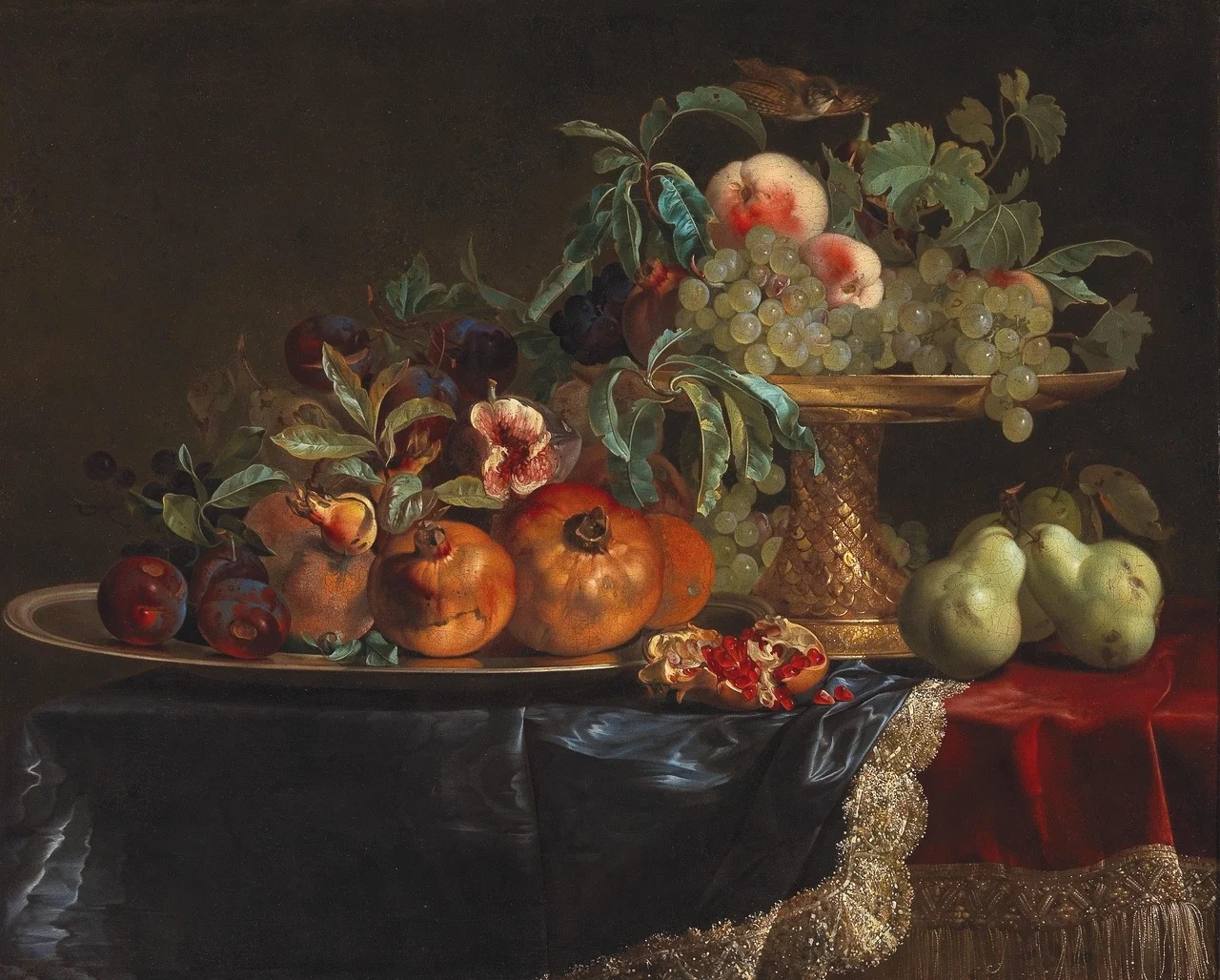Artist Willem van Aelst
Willem van Aelst's still lifes differ from those of his Dutch compatriots
in the abundance of antique Renaissance trinkets. For the beautiful
depiction of flowers and fruit pieces on their canvases, many researchers
rank Willem van Aelst as one of the followers of Willem Kalf (1619 - 1693),
one of the most famous Dutch still life masters.
He also painted a number of elegant hunting still lifes that show very
close and detailed killed game, meticulously painted hunting bags, horns,
bells and other details from the hunting world. All these hunting supplies
are arranged on a marble ledge, casually arranged on an expensive velvet
hunting bag, embroidered in gold, decorated with fringes and tassels. From
birds - trophies, partridges, fattening up fat, and other small birds.
Perhaps because of this, his nickname stuck to the artist - "stuffed bird",
tk. for a long time, while still in Italy to practice perfection in writing
birds, he worked and painted in the poultry yard.
His still lifes often feature an exquisite blue velvet, indicating that
Willem van Aelst used a very expensive lazurite pigment that appeared at
that time - ultramarine for paints, which was imported from China. The use
of such a pigment further enhanced the value of the artist's paintings, and
dictated their purpose only for wealthy houses. Most Dutch artists used
cheaper and less stable pigments. Since 1657. the artist remained to live in
Amsterdam, where he died in 1683. His paintings are very popular to this
day.



































































No comments:
Post a Comment